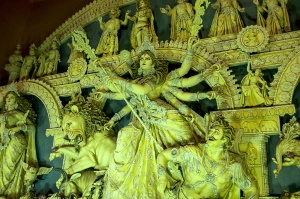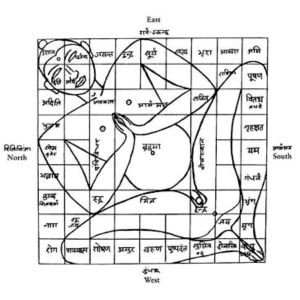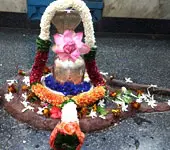Recommended for you
Do you know what is the position and status of Devi?
 Click here to know more..
Click here to know more..
Vastu Gayatri Mantra to ward off Vastu Defects

vaastunaathaaya vidmahe chaturbhujaaya dheemahi. tanno vaastuh' prachodayaat.....
Click here to know more..Chandramouli Dashakam

sadaa mudaa madeeyake manah'saroruhaantare vihaarine'ghasanchayam vidaarine chidaatmane. nirastatoya- toyamungnikaaya- kaayashobhine namah' shivaaya s....
Click here to know more..
English Topics
Mystique
Click on any topic to open
- 31 Death is a New Beginning
- 30 Kinetic Energy, Potential Energy, And The Universe
- 29 What Is The Need For Bhakti Yoga?
- 28 How does it feel when Kundalini is awakened?
- 27 Why Rudra Is Saluted Twice
- 26 Difference Between Jeeva, Ishwara, and Parameshwara
- 25 Some Folk Beliefs In Ancient Maharashtra
- 24 What Is Vedanta?
- 23 Who Will You Be In Your Next Birth?
- 22 Garbha Upanishad
Please wait while the audio list loads..
30
Ganapathy
Shiva
Hanuman
Devi
Vishnu Sahasranama
Mahabharatam
Practical Wisdom
Yoga Vasishta
Vedas
Rituals
Rare Topics
Devi Mahatmyam
Glory of Venkatesha
Shani Mahatmya
Story of Sri Yantra
Rudram Explained
Atharva Sheersha
Sri Suktam
Kathopanishad
Ramayana
Mystique
Mantra Shastra
Bharat Matha
Bhagavatam
Astrology
Temples
Spiritual books
Purana Stories
Festivals
Sages and Saints
26
15
13
Copyright © 2024 | Vedadhara | All Rights Reserved. | Designed & Developed by Claps and Whistles
